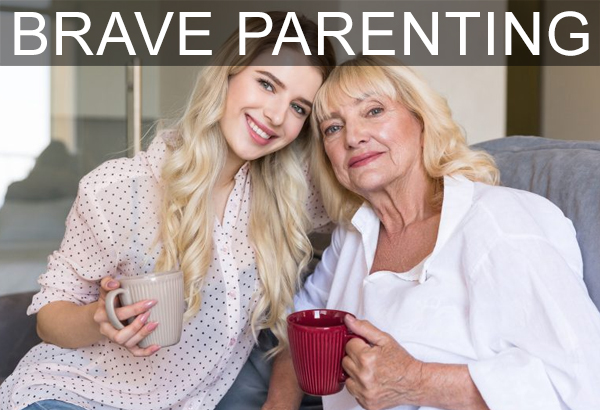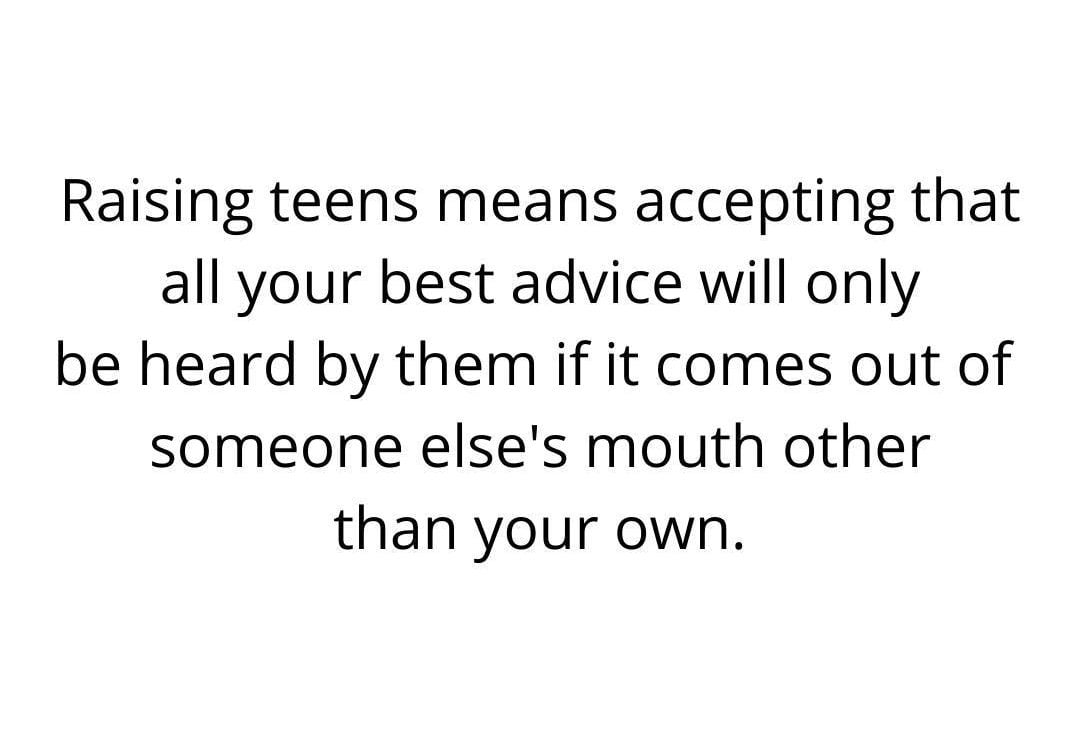Seeking Adults Who Will Answer Questions

The Huffington Post has this fascinating and long article about the “Millennial nuns.” Barna Group has called the group of 20somethings who hold a deep and personal faith “Faith Exiles.” These brave faiths warms this youth pastor’s heart. I believe this is also the hope you have for your teen.
The author of this Huffington Post article is absolutely fascinated by this group—and a bit envious. She shared this insight about her own memory as a teen back in the 1990s:
During my teens, I worried a lot about whether what I was doing was right. I liked the idea of saying the shema, a simple Jewish prayer you chanted at meaningful moments. It seemed to give life anchor points. I mocked but also envied Christian friends of mine who wore those “What Would Jesus Do” bracelets; the thought of having a single question you could ask yourself to resolve all of life’s myriad dilemmas felt clarifying.
Teens and young adults do hunger for clarity. As our world becomes more and more pluralistic and confusing.
I have a long habit of reading statistical reports on teens. Barna Group and Springtide Research are my two favorites. As a favor to you, busy parent of a teen, I’ll read the findings and give you the wisdom.
Springtide Research’s 2021 report is called “Navigating Uncertainty.” This is that seeking for clarity in our pluralistic and confusing world. This report found an amazing and encouraging finding.
(The report can be found here.)
Right now is messy. Social media, pandemic-living, cancel culture, rampant loneliness, political polarization while those divided politicians still spend trillions of future dollars. This is on top of the normal messy of simply growing up.
Thankfully research is showing that teens and young adults don’t feel the need to fix the problem immediately. They are okay with bearing the problem, breathing deeply, journaling through the problem or getting out in nature to find the space needed to handle the problem. 51% of ages 15 to 25 say they are comfortable with not having all of the answers. The majority are comfortable with uncertainty.
In Dr. Brene’ Brown’s words, they understand that the rumble is okay. The rumble defined is:
A rumble is a discussion, conversation, or meeting defined by a commitment to lean into vulnerability, to stay curious and generous, to stick with the messy middle of problem identification and solving, to take a break and circle back when necessary, to be fearless in owning our parts. https://brenebrown.com/articles/2019/05/01/lets-rumble/
I call this holy tension which I define as the discomfort of being stuck in between but knowing that if you can make a brave vulnerable decision something holy is going to happen. I find holy tension throughout the Bible stories. When I feel it happening in my life, I know God is making me aware of something.
Teens and young adults aren’t looking for a solution for uncertainty– which is not only a fact of life of maturing, it is also a fact of our cultural moment. According to the research,
Young people are looking for relationships built on presence and listening, not advice and fixing. Just let them talk.
Read also: Make Time for the Wandering Mind
Young people are seeking adults who will let them talk and answer those questions.
From the research, 71% say they are religious; 78% say they are spiritual. Notice those high numbers when we have media that tells us of pluralistic faith and faith deconstruction. Both of these are true.
Of those who identified as “very religious,” 40% say they found connecting with their faith community helpful during challenging or uncertain times. This is you, parent. This is also the 5:1 ratio of people who have intentionally given your teen. This is who is in your circle.
(Sigh that it is only 40%.)
You can turn to pp. 54-55 in the report to read the details but these are the summary findings:
- Young people are uncertain.
- They aren’t turning to religion.
- But they are religious.
- Those who are religious are flourishing.
These are the Faith Exiles. This is who you want to raise. Have hope. You and the people you put in your teen’s life are the difference maker.
Young people are seeking adults who will let them talk and answer those questions.
Also from the report:
- 58% say they don’t want to be told answers about faith and religion. They want to discover their own answers.
- 54% say religious institutions try to fix my problems instead of just being there for me.
- 45% say religion is about certainty and doesn’t welcome uncertainty, doubt and questions.
With the people you have given to your teen, give your teen the freedom to talk and ask their questions. To give words to their doubts. To feel safe enough to express their uncertainty and then find out that an uncertain faith is a brave faith. To provide “along the way” experiences of what faith looks like. To share stories of times when it felt like God had abandoned yet time has proven how close God always was. How faith is grown memory to memory. Random conversations with lots of listening, some sharing, that all provide clarity.
As a youth pastor, I want to repeat that paragraph but this time screaming it at you. Do you hear me?
Another finding from Springtide Research. From their March 2020 report (note: before pandemic life began) entitled Belonging: Reconnecting America’s Loneliest Generation found that just adding one trusted adult in the life of a young person dramatically decreases the sense of loneliness and isolation. They found a direct correlation between the number of trusted adults in a young person’s life and that young person’s sense of meaning and purpose. That sounds like flourishing to me—tied to faith.
I mention this 5:1 ratio often. Here are the numbers to back that up from the same Springtide Research report. 50% of young people who say they have no mentors say their life has no meaning or purpose. Compare that to 70% who have at least one mentor say their lives have meaning and purpose. This number jumps to 85% for those who say they have two to four mentors. If you have that 5:1 ratio, the number jumps to 91%. The correlation is undeniable.
Those who are religious are flourishing–in this crazy culture moment. Parent, you have a lot to do with this. Find your people for your teen and give them permission to listen and answer questions. Trust your people.

Comments
Trackbacks & Pingbacks
[…] if church provided the intergenerational relationships that teens […]
[…] Seeking Adults Who Will Answer Questions […]






Jenna
Hi! I am actually working on a talk I’m giving to a room full of moms about Parenting Positively through the Digital Age with a focus on preteens, teens and tech. This article helps me so much! Thanks for breaking it down. This validates and supports some of the points I am making…will use it and credit it!
Brenda!
I wish I could be a fly on the wall and cheer you on!!!! Thank you for the credit and more importantly, encouraging the parents with what I believe is the best thing they can do for their teens.
Sharon
When my husband died, my kids were in college. We were so devastated, but I told them from the begging that we weren’t going to fall apart. I knew that although I had never been through anything like this grief, I had to be an example of how to move forward! It’s been almost 10 years, and my kids are great. I know their uncertainty must have been very hard at times!!
Brenda!
I cannot imagine the unspoken fears and questions your kids had. Or maybe they were able to speak them?!?!?! What a great 10-year testimony.